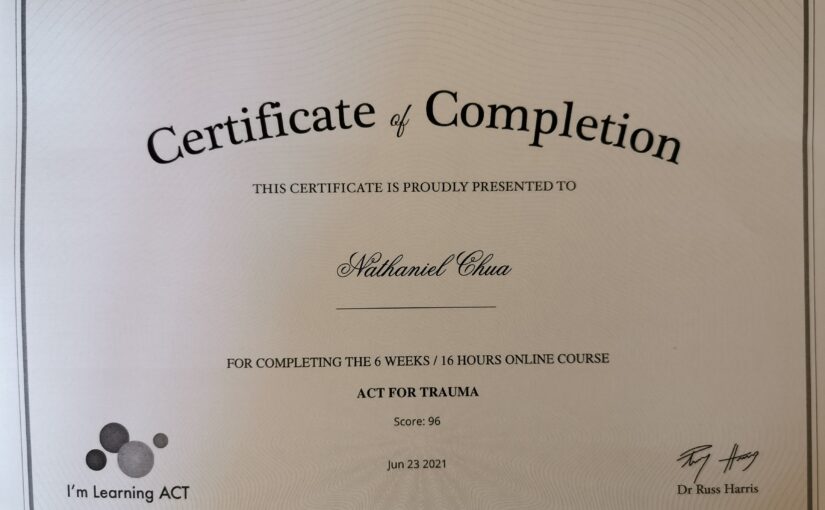by Nathan Chua
It is hard to imagine how all of us have suffered through this pandemic for so long. None of us, except for a few elite scientists, could have known that this would happen in our lifetime. This situation has probably sent you through a whole gamut of difficult thoughts and feelings. From struggles with anxiety, fear, frustration, anger, relationships, boredom, and more; they are all understandable in these times.
Some of us may be saying, look what Covid has done to me? I’ve become more irritable, less tolerant, depressed, anxious, angry, and many more. You are not alone. You share these thoughts and feelings with anyone who has had a brush with all that this pandemic has been inflicting on us for over a year now.
The key here is to know what is within or outside our control. With difficult situations come difficult thoughts and emotions, and sometimes it could be difficult relationships as well. Unfortunately, it is often that we find ourselves judging all of these as unwanted, unnecessary, and even harmful to us. We can’t be blamed for having these judgmental thoughts. In today’s “success equals feel good and happy” society, there is really nothing much that can explain why we feel miserable, except that there’s probably something wrong with us. We are defective in some ways compared to others. They all seem well put together and coping well in spite of everything.
You and I have minds that are quick to judge ourselves especially when times are rough. This is the hardware that we come with. The depression comes when we buy into the idea that we have something to do with the quality of our thoughts. We measure our sanity against the seemingly pristine and peaceful minds we see in TV ads, social media, and the gigantic, right on top of us, billboards. Eventually we discover how futile our attempts to suppress unwanted thoughts are, and begin to have a sense of powerlessness and of being ineffectual. We fight with the constant murmurs of our minds and get caught up in this struggle. Here’s the secret sauce, “Give it up!” It doesn’t matter how many pills or distracting activities we do, let’s come to an acceptance that our minds are simply wired that way. Next thing we do?
Commit to doing things that tally well with what we want to do with our limited time on this planet, and more so, with our short, precious moments with those who matter to us. Take these thoughts and feelings and bring them for the ride of our choosing. Come back to what truly matters to us with all the unwanted chatter! Be present with our kids even if our minds continue to remind us of that upcoming mortgage payment. Be kind and loving even as we feel frustrated with how people around the house are acting. Act calmly even if we aren’t feeling calm. We can do it if we are willing to do the hard work, because in the end, it only matters what we have done, not what thoughts and feelings we struggled with in our heads.










